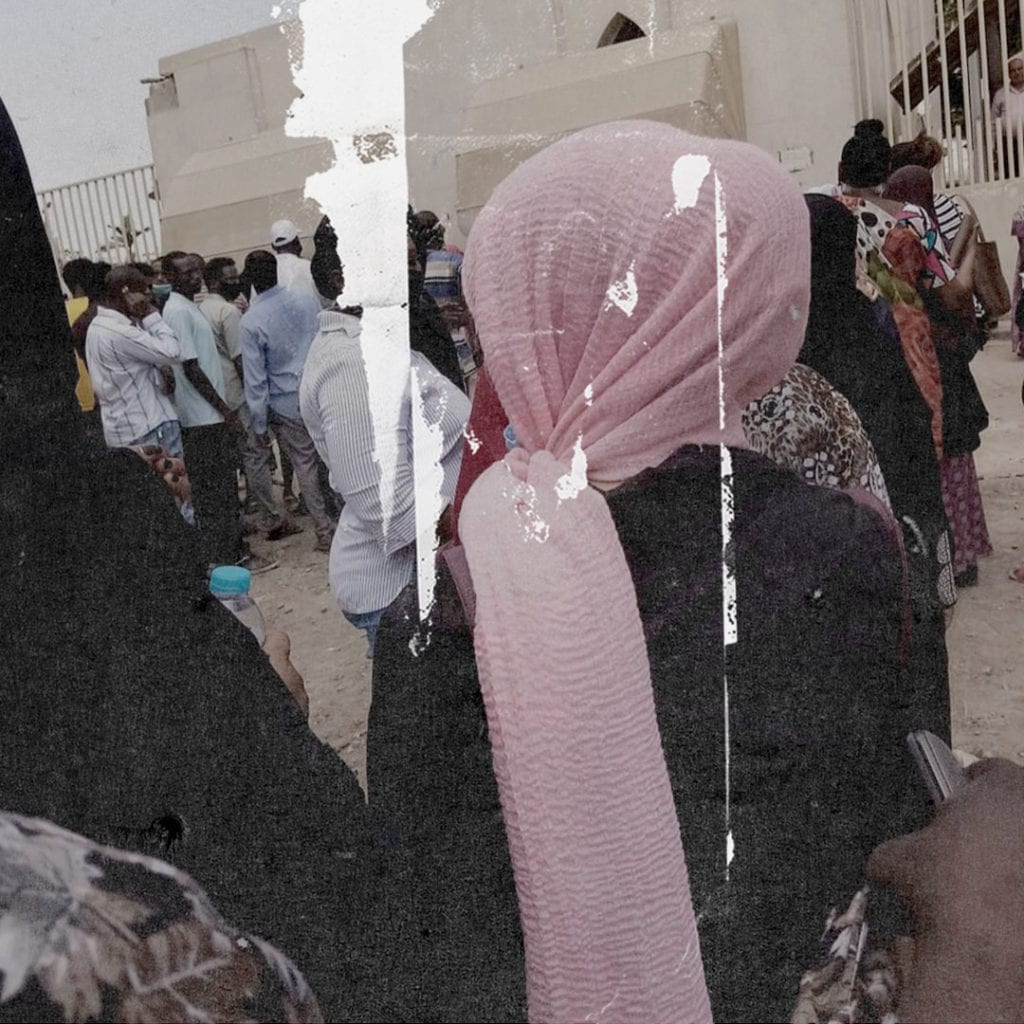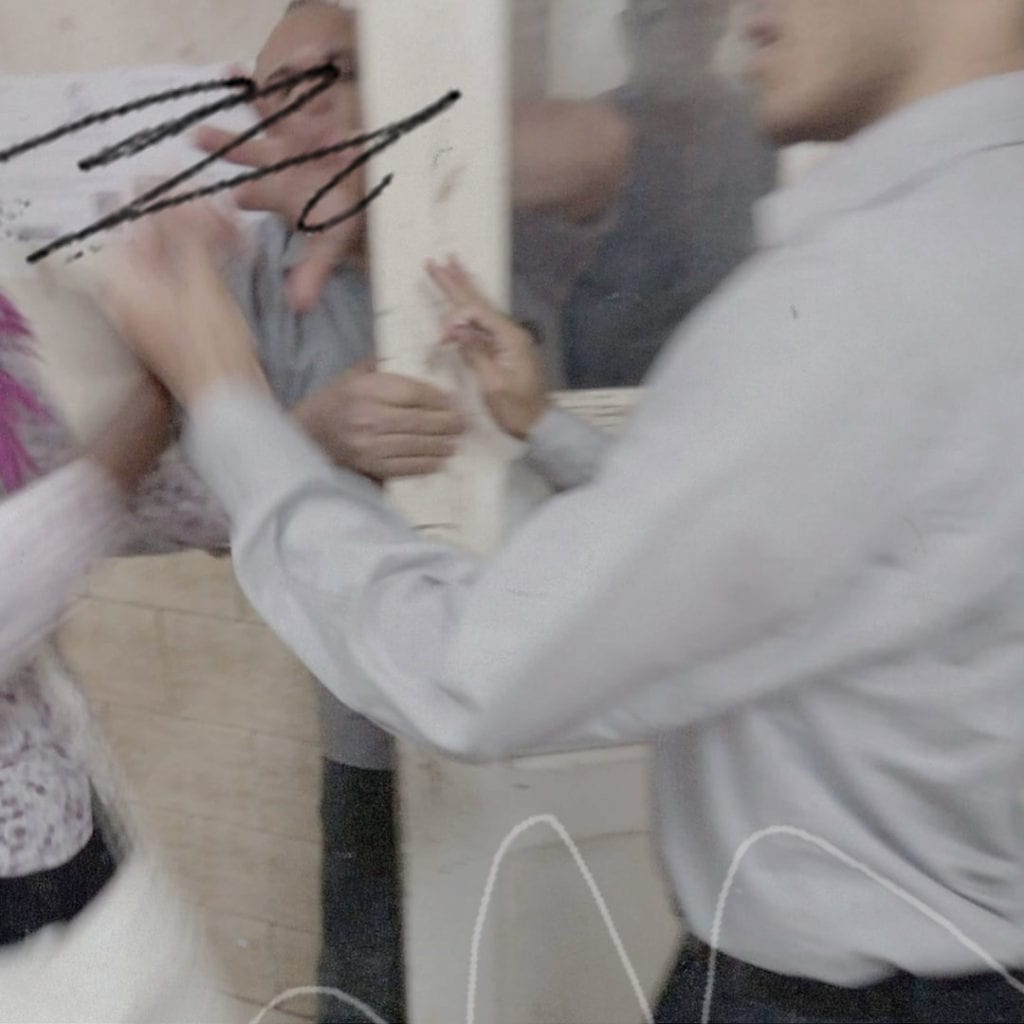Manal arrived in Egypt in the early morning of November 23, 2016, after a dangerous journey starting in the far south of Sudan. She sought refuge in Egypt, hoping that she, her sisters, and her sick mother would be safe from the perils of war back home. Yet things only got worse.
On her illegal journey into the country, Manal was raped by her traffickers. Her tears and pleas did nothing to deter them. She endured the repeated assaults to protect her sisters and mother from the same fate. It caused a genital injury.
Manal had hoped that the suffering would end once she was in Egypt. But her hopes were shattered the moment she set foot in the country. From day one she fell victim to bullying and harassment. The outbreak of the coronavirus made things worse, as she started working at the house of an Egyptian businessman in the Cairo suburbs.
The man blackmailed her. He forced her to have sex with him in order for her to get her wages. And he threatened that, if she dared to refuse, he would report her to the police as a thief. Manal endured his assaults for two months, before she was able to quit and start working in the home of an old lady in Nasr City.
Manal is only one of three cases in this investigative report, which was documented over a period of five months, shedding a light on the surge in physical and sexual abuse against women refugees during the corona pandemic in Egypt, as they are forced to work to support their families.
The United Nations High Commissioner for Refugees (UNHCR) did not help. Manal tried to register for better protection and have access to some of the food, health and financial assistance provided by the UNHCR and its partners. She tried to reach the UNHCR for six months, yet in vain.
Protection
Article 25 of the Universal Declaration of Human Rights, among other things, stipulates that: “Everyone has the right to a standard of living adequate for the health and well-being of himself and his family, including food, clothing, housing, and medical care.”
Both the Egyptian authorities and the UNHCR have failed to take adequate measures to protect women refugees from harassment, physical and sexual attacks, especially after the coronavirus outbreak. According to lawyer Haitham Hussein, legal advisor of the Egyptian International Organization for Human Rights (EIOHR), the UNHCR closed its doors and denied access to refugees, until the responsive report was published.
According to the report, the UNHCR and its partner CARE International, were informed of 1,231 cases of gender-based and sexual violence against African and other foreign nationalities in 2019. Following the coronavirus outbreak in early 2020, the number of rape and physical assaults jumped to some 300,000 cases.
She was not only a victim of sexual and physical harassment in Egypt, but also a victim when it came to the United Nations High Commissioner for Refugees.
The report highlights the failure of the UNHCR, its partners, civil society organizations and the Egyptian government to protect women refugees from physical and sexual violence following the coronavirus outbreak. Even before the pandemic the UNHCR was aware of the immense problems refugees in Egypt are facing.
“I am deeply troubled by the fact that eight out of 10 refugees in Egypt are living in desperate humanitarian conditions,” stated the UN High Commissioner for Refugees, Filippo Grandi, on February 28, 2020. “They cannot meet even their most basic needs. Putting bread on the table is a daily challenge. These refugees require timely and adequate humanitarian assistance. Yet, right now we are unable to provide them with the bare essentials or maintain our core refugee protection programs in this country.”
Amal
Amal, a 17-year old secondary school student, fled the war in Sudan in December 2018 to seek refuge in Egypt with her father, older brother and younger sisters. She received a UNHCR refugee grant to complete her studies in Egypt.
“I have experienced all kinds of beatings, bullying and harassment from my schoolmates and neighbors,” she said. “My sisters and I are living in fear. Our mental health has deteriorated to the level of a chronic depression. My father tried to reach the UNHCR several times, but in vain. We cannot stand it anymore, especially since the coronavirus pandemic.”
When the pandemic cast its shadow over Egypt, business virtually stopped. Her father and brother became unemployed, due to governmental decree No. 719/2020, that allowed for downsizing employment in the public and private sector to contain the spread of COVID-19.
Her father and brother’s work was the family’s sole source of income, after the UNHCR’s financial and food assistance was suspended. That amounted to some 700 pounds ($50) a month, which was not enough to pay the rent. As a result, Amal had to find a job for her and her younger sisters.
She asked her friends about work. The only solution was to find employment as a domestic for some 800 pounds ($57) a month. A friend sent her to a domestic workers’ office in the neighborhood of Dokki. According to her, it was a reliable office that could provide work at once.
“I called the office and they told me there is work for me and my sisters for 800 pounds a month,” Amal said. “We are three sisters which meant we would make enough money to help improve our living conditions until the curfew is lifted.”
On March 24, 2020, the Egyptian government introduced a partial curfew in the whole country from 7 p.m. to 6 a.m. Violations are fined.
Despite the curfew, Amal arranged with the domestic workers office to get a job quickly. They agreed on the salary and the following morning, she headed from the 6th of October City to the neighborhood of Agouza, where she started working at the home of an engineer.
Her sisters took up a job at a villa owned by a businessman in Al-Zamalek in central Cairo. The first few days passed without problems, but in the second week, her younger sister was harassed by the owner’s son, after he had asked her to clean the garden. The young girl did not understand what happened. She did not know it was sexual harassment, as she was only 14 years old.
The son did not stop there. One day he took her to a corner of the house, again under the pretext of cleaning, and raped her until she lost consciousness. After her sister was raped, Amal went to the owner of the house to complain about his son, only to be beaten and raped herself.
“I am deeply troubled by the fact that eight out of 10 refugees in Egypt are living in desperate humanitarian conditions. Putting bread on the table is a daily challenge.”
Violence
“Raped women face moments of horror that shake their psychological well-being and cause severe psychological trauma,” said Dr. Karma Nafadi, director of the Al-Radwa Center for Mental Health and Educational and Family Counseling. “In addition, they face death, while their dignity is violated. When I examine a rape victim immediately after the crime, she is often in a state of shock and confusion, not able to speak in a normal way, her words being incoherent or vague.”
“Psychologically, rape involves physical violence, compulsion, and a desire to own a woman’s body leading to the sexual act,” she continued. “In other words, it’s a crime of violence, but linked to gender. Or it may be a false sexual act, the motives of which are more related to anger, power, control and aggression than to desire and pleasure. Rape reflects contradictory feelings toward the female. A perverse desire, hostility and a sense of failure to deal with her in a normal way.”
“If the rape victim’s character was stable before rape, and if she receives sufficient support after it, she may be able to fully recover within a year of the event and return to a normal life as a woman, including a normal sexual life,” Dr. Nafadi said. “In some cases, there may be a temporary anxiety about sexual intercourse, which in some cases may reach the level of phobia, and the victim may experience some sort of vaginal contractions that make intercourse difficult, at the beginning of a marriage, for example, or frigidity. These symptoms can be treated as they appear. But it is better to treat the victim early so that the can be avoided.”
Nisrine
Nisrine arrived in Egypt in December 2016 to escape the war in Syria. She fled after a rocket-propelled grenade hit her home in the city of Homs. She has moved between Alexandria and Cairo looking for work, after the UNHCR refused to provide her with financial or food aid.
She too was verbally and sexually harassed since her arrival in Egypt, yet was never raped. Until the outbreak of the coronavirus …
Nisrine’s life came to a complete standstill when the government imposed the lockdown and curfew from 7 p.m. to 6 a.m. She searched for a job to be able to secure her basic needs. Like Amal and Manal she found work as a domestic worker.
After several failed attempts, she got a job at a villa in the 6th of October City. It was owned by an Egyptian businessman, living with his wife and children.
“He seemed a respectable man,” said Nisrine. “And I felt relieved, although from the start I feared he might only be faking it. After a few months, I started noticing his bold looks towards me. But I acted as if I didn’t notice. To keep my job.”
“But it didn’t matter,” she continued. “His looks radically changed. Every time we were alone he would flirt with me, even though I wear a veil and loose-fitting robes that do not show my body. I was scared but tried to hide my fear. I thought about telling his wife about what was happening, but I feared her reaction. He hadn’t touched me or come near me. He only flirted. But due to my refusals and lack of interest his advances became more aggressive. Then, one day we were alone at home he harassed and hit me, pulled me by my hair to his bedroom, and raped me.”
Nisrime rushed to the street in a very bad state. She kept silent, trying to hold back her tears, as if nothing had happened. Once she had reached her room, she collapsed.
She spoke to a relative in Al-Obour city and told her what had happened. Her realtive advised her to keep quiet and do nothing, so she would not be raped again. Nisrime tried to live with the pain, but it only increased day by day.
Nisrine talked with the UNHCR requesting them to take legal action in an attempt to hold her rapist accountable. But they offered her nothing except for two sessions with a psychologist by phone.
3 to 7 years
Article 267 of the Egyptian Penal Code provides a short term penalty of 3 to 7 years of hard labor for sexual assault, which can be increased to life imprisonment with hard labor in case the perpetrator is related to the victim, is her guardian or has authority over her, or works as a servant for the victim.
“As an organization, we try to protect physically and sexually assaulted victims, but we are facing many problems,” said lawyer Haitham Hussein of the EIOHR. “First, the victims’ fear to file a complaint, because of the rapist’s threats or because of the absence of proof. It is a common mistake for people close to the victim to tell her to change her clothes and take a bath, as they believe that will comfort her physically and psychologically. However, they do not realize that by doing so she will not be able to prove the crime, as rape is usually a crime without witnesses. The investigation relies on traces of DNA on the victim’s body and clothing.”
According to the UNHCR 2020 Global Report, the organization requested donors a $118 million budget for its work in Egypt, yet t received only $45 million since the outbreak of the coronavirus pandemic. The UNHCR claims the money was spent on protecting refugees, including those sexually and physically assaulted.
Our reporters contacted the UNHCR and Save the Children Egypt to ask them about what legal steps are taken in case of sexual or physical violence, yet did not receive a response within the legal required period of 15 days.
This investigative report was carried out with the support of the International Center for Journalists and the Facebook Journalism Project under supervision of our colleague Asma al-Obeidi.
Read Also:
No posts










